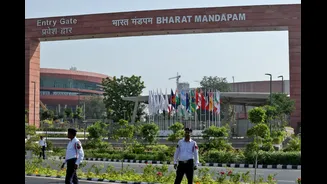Understanding PM Kisan
The Pradhan Mantri Kisan Samman Nidhi (PM-KISAN) Yojana is a financial assistance program launched by the Indian government. The program's core aim is to
provide income support to all landholding farmer families across the country. Under PM-KISAN, eligible farmer families receive financial aid of Rs 6,000 per year, disbursed in three equal installments of Rs 2,000 each. This direct income support helps farmers meet their agricultural and other needs, thus improving their overall financial stability. The scheme’s implementation reflects the government's commitment to supporting the agricultural sector and enhancing the welfare of farmers nationwide.
Who Is Eligible?
To be eligible for the PM-KISAN Yojana, specific criteria must be met. The program is designed to benefit all landholding farmer families. Key eligibility requirements include Indian citizenship and ownership of agricultural land. It’s important to note that certain categories are excluded. These include institutional landowners, farmer families where one or more members belong to higher economic status, such as former or current government employees, and income tax payers. Furthermore, professionals like doctors, engineers, and lawyers are also excluded, along with retired pensioners with a monthly pension of over Rs 10,000. Ensuring you meet these criteria is the first step towards receiving the scheme's benefits.
e-KYC Completion Guide
Completing the e-KYC (Know Your Customer) verification is essential for receiving the PM-KISAN benefits. This process helps to verify the identity of the beneficiaries and ensures that the financial aid reaches the intended recipients. The e-KYC can be completed through two main methods: online and offline. Online completion typically involves visiting the PM-KISAN portal and following the instructions provided. This usually requires entering Aadhaar details and completing an OTP-based verification. Offline completion can be done at Common Service Centers (CSCs) where biometric authentication is used. Ensuring that your e-KYC is up-to-date is crucial for the smooth disbursement of the installments.
Checking Beneficiary Status
Farmers can easily check their status to confirm whether they are eligible for the PM-KISAN Yojana and to track their installment payments. The process involves visiting the official PM-KISAN portal and navigating to the beneficiary status section. Here, farmers need to enter their details, such as their registration number or Aadhaar number. The system will then display information about their eligibility status, including the status of each installment. This feature is useful for verifying whether payments have been processed, identifying any discrepancies, and ensuring that the necessary information is up-to-date. Regularly checking the status helps farmers stay informed about their benefits and take appropriate action if needed.
Upcoming Installment Details
The 21st installment of the PM-KISAN Yojana is highly anticipated by farmers across India. The details regarding the disbursement date of this installment are typically announced by the government through official channels, such as the PM-KISAN portal, agricultural departments, and official press releases. Farmers should keep an eye on these sources for the most up-to-date information. Moreover, it's important for farmers to be aware of any changes or updates related to eligibility criteria or the e-KYC process that may affect the receipt of the 21st installment. Keeping all details updated will ensure continued access to the benefits offered by the PM-KISAN scheme.
Who Might Be Excluded?
Not all farmers are eligible to receive the PM-KISAN benefits. Some groups might not be eligible for the 21st installment. As previously mentioned, those belonging to higher economic statuses, such as government employees or income tax payers, are excluded. Also, if farmers have not completed their e-KYC or if their details are not correctly updated on the PM-KISAN portal, they may face delays or exclusion. Regularly verifying the accuracy of personal information and the completion of e-KYC are vital. It’s also necessary to review any updates in eligibility guidelines issued by the government to ensure continued participation in the scheme and receipt of installments.















